'Dying for Sex' Brought Jenny Slate to Life
The FX on Hulu miniseries forced the actress to grapple with heavy topics from friendship to grief but digging deep ultimately set her free.
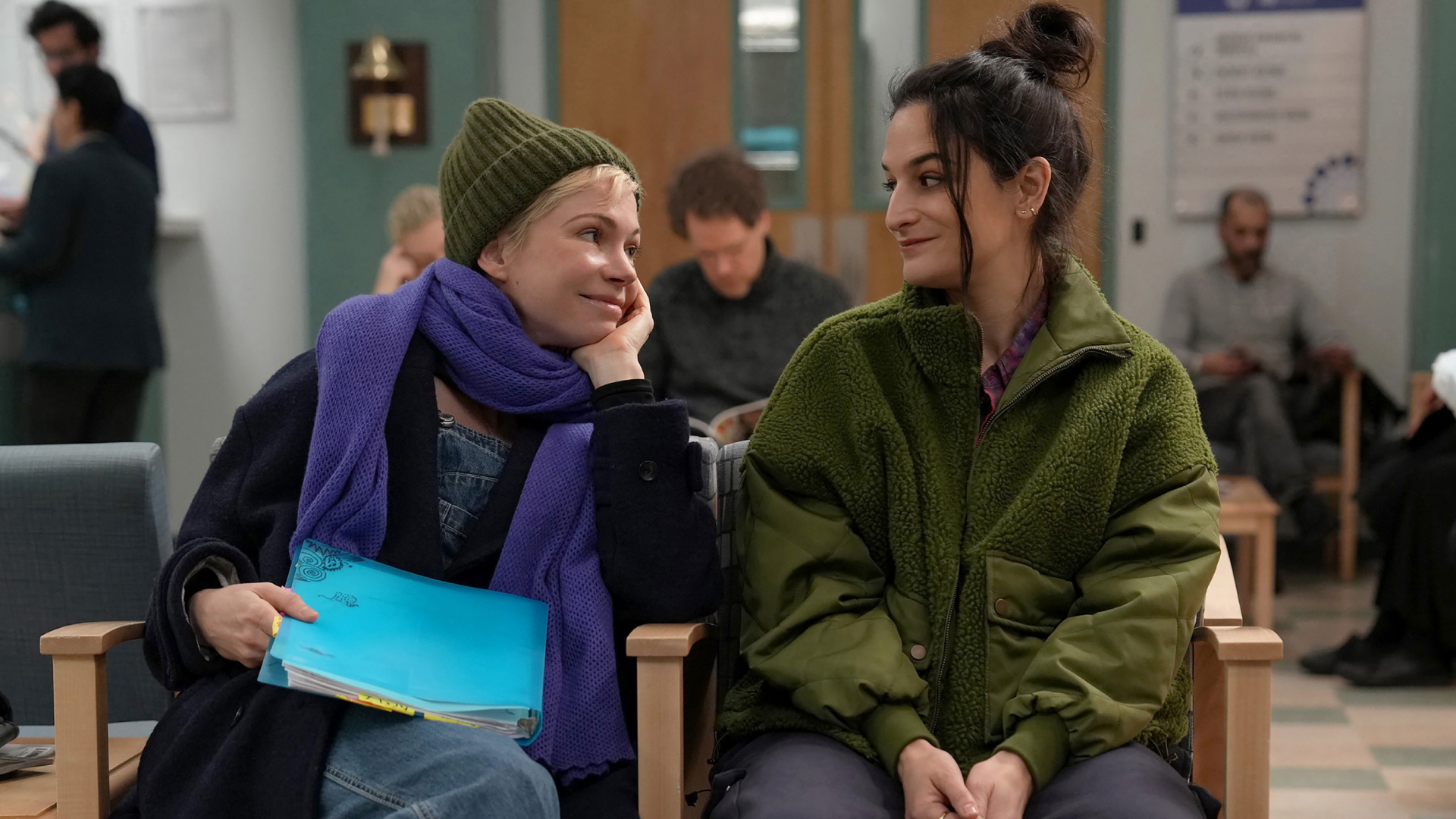
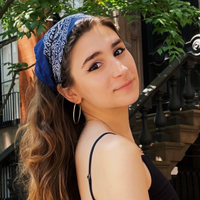
After welcoming her daughter in 2021, Jenny Slate began to believe in herself in a new way. The actress/comedian realized she wanted to take on projects that not only allowed her to flex her well-established comedy chops, but ones that dug deeper. It led her to Dying for Sex, her latest and arguably best onscreen role to date.
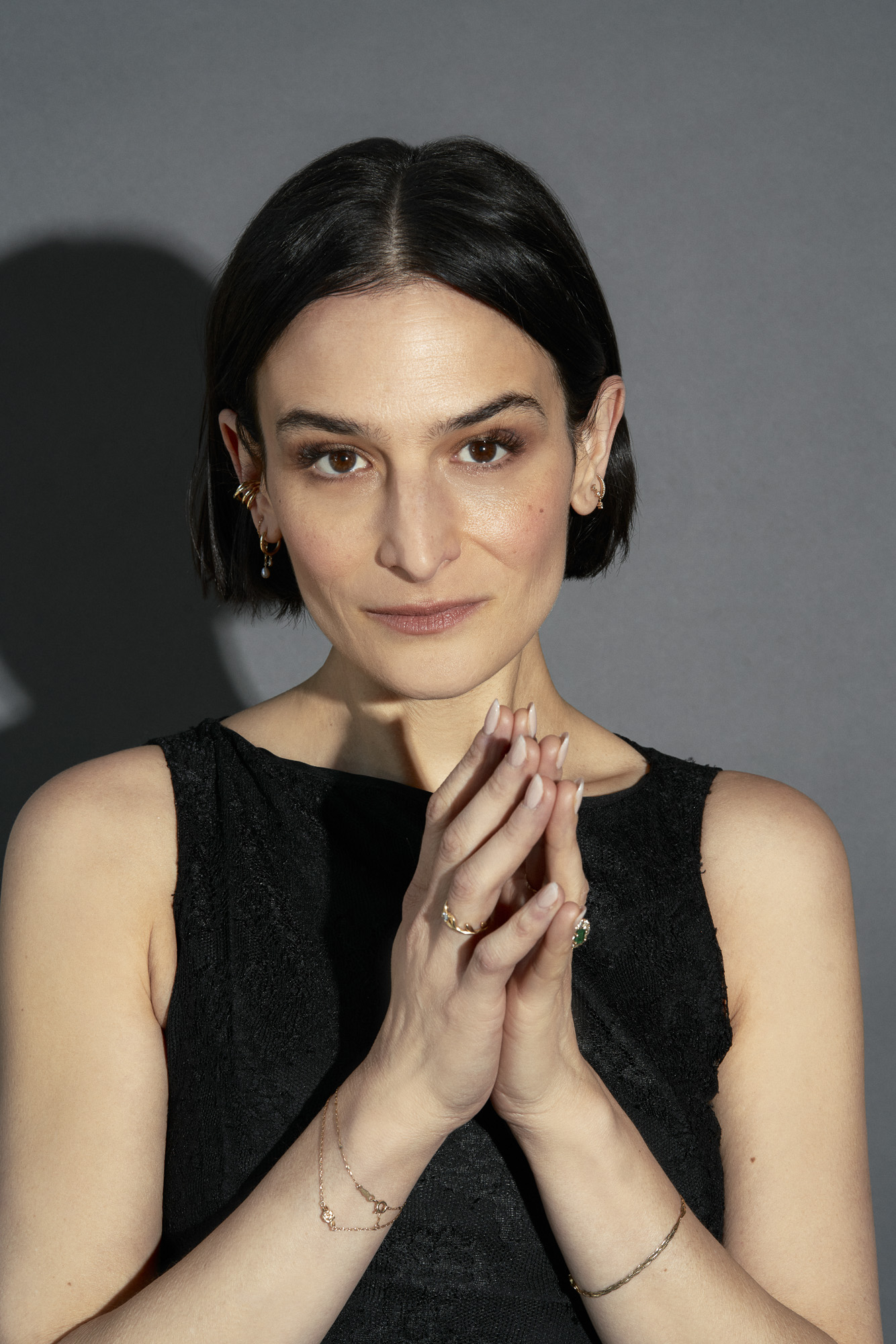
Jenny Slate also recently starred in the blockbuster It Ends with Us, and can be seen next opposite Amy Adams in At the Sea.
In the FX on Hulu show, Slate, 43, stars as Nikki, the best friend to Michelle Williams’s Molly, who has been diagnosed with terminal metastatic breast cancer. Based on Nikki Boyer’s 2020 podcast about her real-life friendship with the late Molly Kochan, the miniseries follows Molly as she leaves an unhappy marriage in pursuit of pleasure. Nikki becomes not only Molly’s caretaker but her trusted wingwoman in getting laid. But the show is about so much more than sex. Through her work, Slate quickly found herself ruminating on topics like friendship, purpose, how finite life is, and what we make do with our time.
While pondering life and death came new to Slate with this role, she hasn't shied away from crafting projects that deal with capital-F Feelings. Take, for instance, her book of essays Little Weirds, which examines loneliness and love, or her Oscar-nominated film Marcel the Shell with Shoes On about the search for family. So when the team behind the series struggled to cast a Nikki, Slate felt like the perfect mix of humor and heart. A week before the dramedy’s April 4 premiere, the actress told Marie Claire how much she connected with the show's layered themes from the jump.
“The message is not just one of awakening, but it is, for me, the multiplicity that is actually in our sexual pursuits—the amount of our own story that we tell via who we are able to be sexually or allow ourselves to be or how we hold ourselves back. There's so much more in there than I think culture often wants us to believe.” She continues, “What would the world be like if, sexually, women put themselves first? If women could make decisions about their bodies, there’s terror around that power—for good reasons, because the power is immense.”
Here, Slate shares what the show made her reflect on, what it was like filming the kink party scene, and why she loved working on its women-led set.
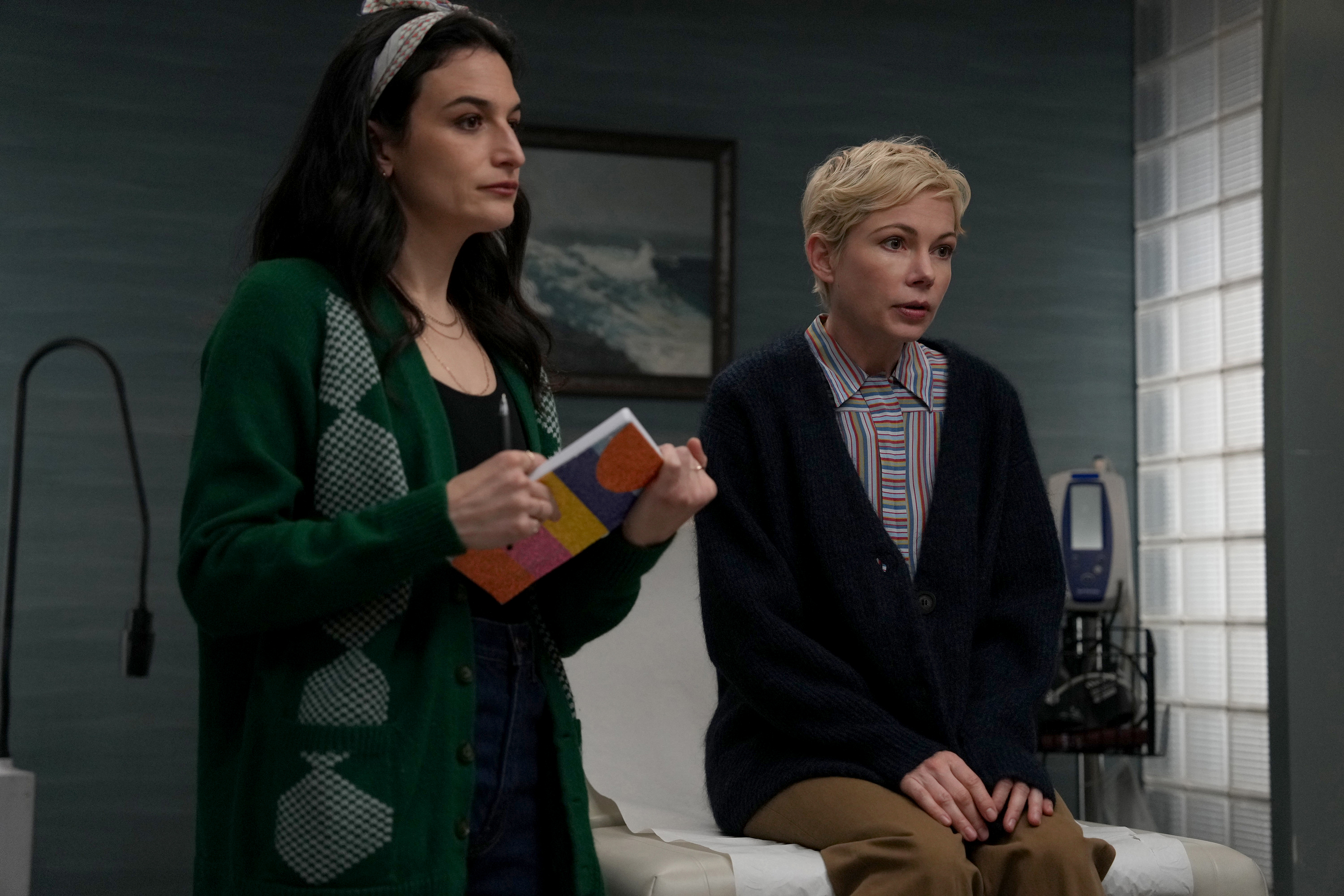
Nikki (Slate) and Molly (Williams) at a doctor's office visit in episode 3.
Marie Claire: The real Nikki was a producer on the show (and has a cameo in episode 5, “My Pet”). Did you talk to her to prepare for the role?
Jenny Slate: I didn't speak with Nikki or meet her before we started filming. We had emailed; I wanted to introduce myself to her. But then I met her on set and we became close quickly. The thing that I think Nikki would say—that all of us who made this project would say—is these characters of Nikki and Molly are not impersonations of the real Nikki and Molly, but they are interpretations, and it's an interpretation of their relationship. Some of it is very similar to who they are, and some of it is different.
Get exclusive access to fashion and beauty trends, hot-off-the-press celebrity news, and more.
The real Nikki, for example, I don't think she or I are messy the way that Nikki on the show is. I did ask Nikki a lot about her experience with her ease with expressing anger. It's not something that comes naturally to me to express anger with the pure fire and force that the character of Nikki does.
MC: You’ve done a lot of stand-up about feeling intensely, and with Nikki, you’re encouraged to express everything. Was it liberating to perform like that?
JS: It certainly was. There were many ways in which I felt set free by this work and [by] the relationships that I made through the performance and the other actors, especially with Michelle. When I was playing Nikki, it's appropriate to careen, to blast, to not filter, and it's also appropriate to be completely dedicated. That combination is really, really interesting to me and not the way that my own dedication to the people I love in my life is paired. I guess I could probably use a bit more of a filter—as I get older, I feel like I'm developing one—but my devotion to people is paired differently. It's paired with a carefulness, a thoughtfulness. I would describe myself as a fairly gentle creature. I'm not afraid of confrontation, but I am really into nonviolent communication.
Nikki is not aware of what the concept of nonviolent communication is. She's going to insult people. She's going to go really hard at them and perhaps go farther than she needs to go, but she is out for justice. It felt so good to be allowed to do that and to make decisions within that. The character can often seem short-fused, but a performance like that requires a lot of decisions on the inside. I appreciated the ability to think about falling apart, to think about exploding, and how I wanted that to go.
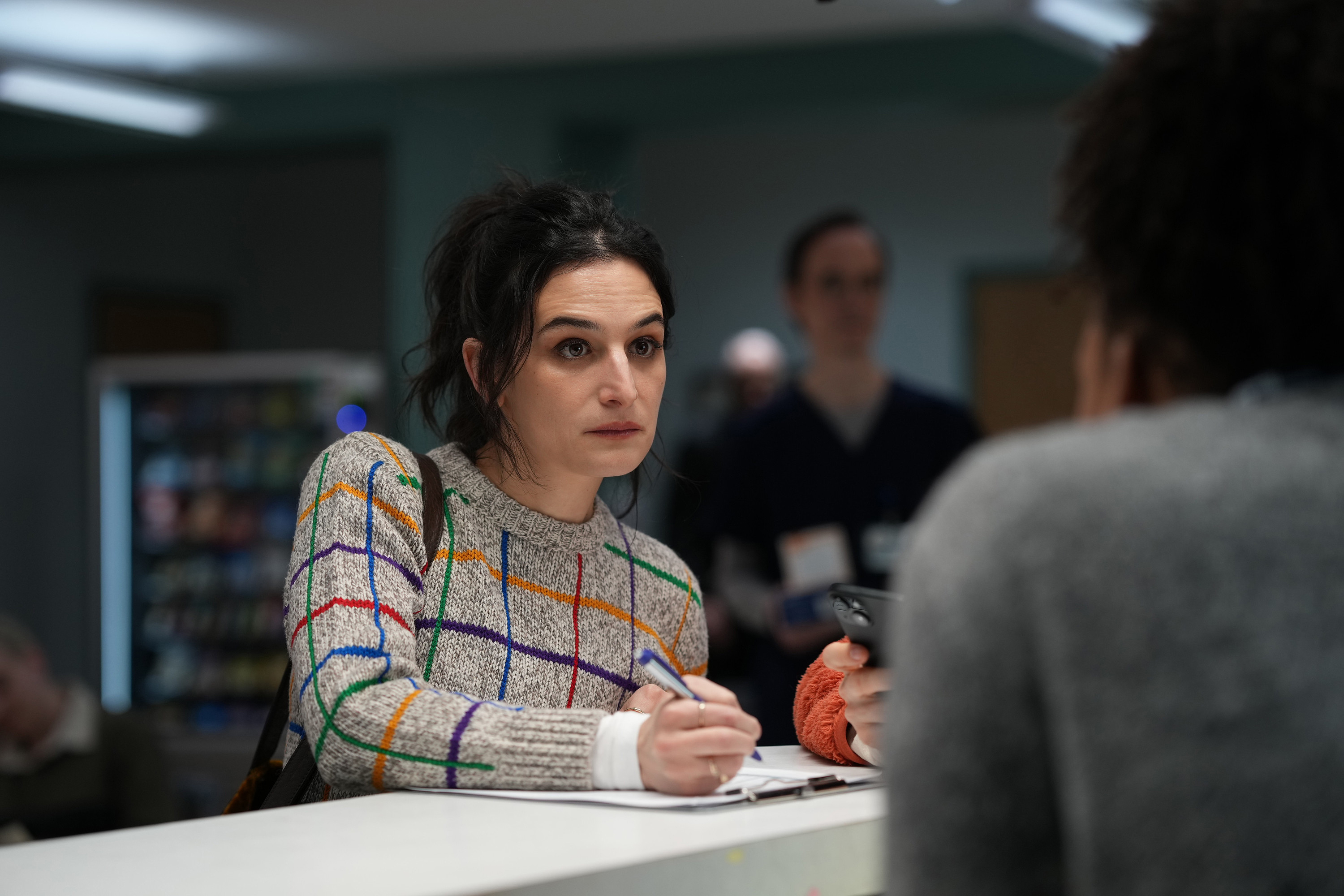
Slate says that while her character Nikki is inspired by executive producer Nikki Boyer they still have distinct differences.
MC: Dying for Sex tackles a lot of big questions, like who we want to spend our days with. Did the subject matter make you do any reflecting?
JS: Certainly. The assessment that I was fortunate enough to be able to do, using this show as a checkpoint, [was]: Am I where I want to be? Am I serving myself? Am I being honest about who I am? Am I actually doing what I want to do? Being able to make that comparison and understand the importance of spending our lives and the finite amount of time that we have here in the optimal way. I looked into my own life and found a lot to appreciate. Without becoming paranoid, I was able to look at the preciousness of, for example, my husband—look that in the face and be like, I really, really, really don't ever want to lose this person. This feeling in me has bloomed. It’s a feeling of gratitude, a little bit of don't be wasteful, the time you have is what you have.
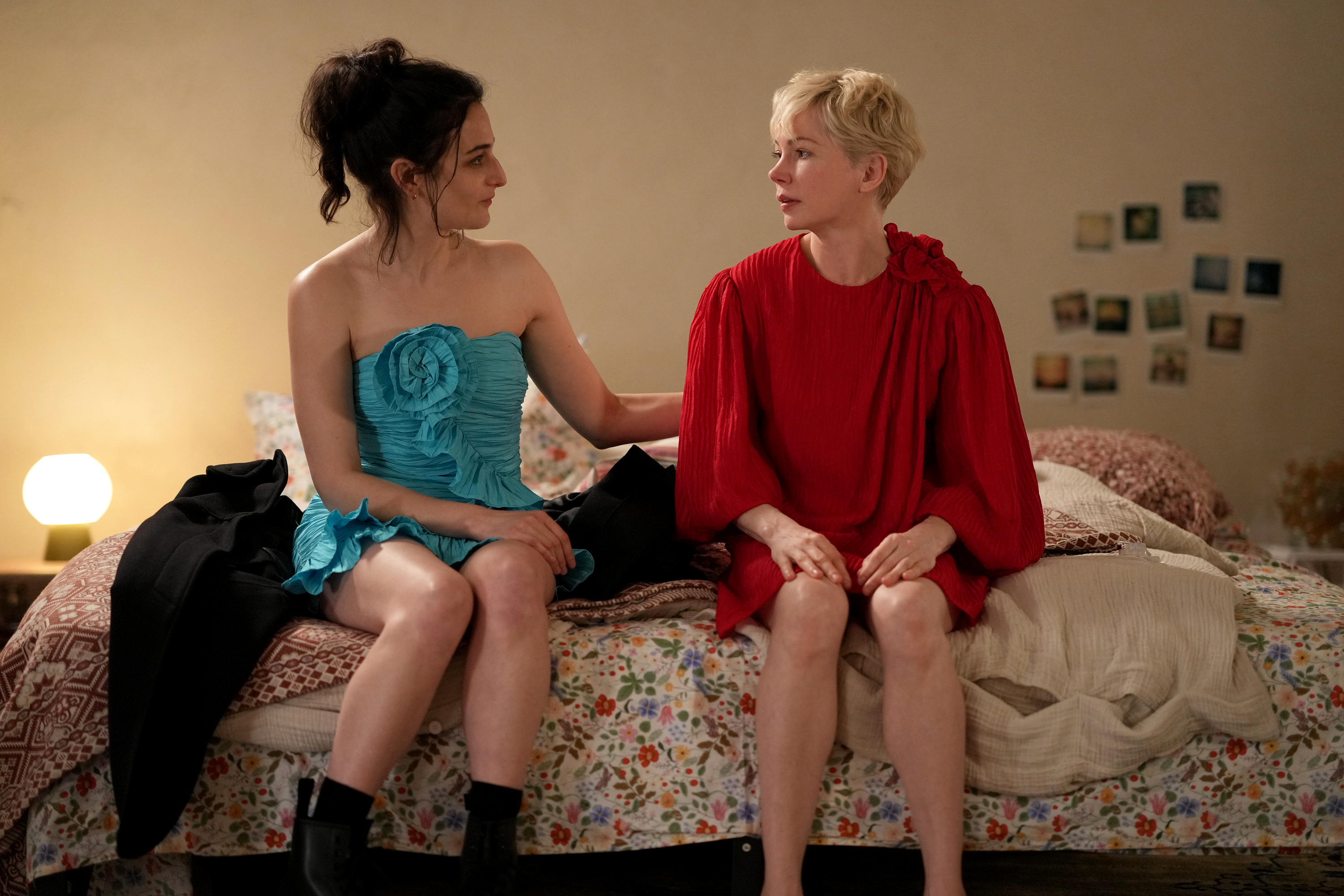
"There were many ways in which I felt set free by this work and [by] the relationships that I made through the performance and the other actors, especially with Michelle," Slate says of the project.
MC: You’ve written about fear in many forms, and so much of Nikki’s journey is about her fear of losing Molly. Was her preemptive grief something you related to?
JS: No. I've got to say that was something that I had to create.
I was very close with all four of my grandparents, and when I was little, I knew they were old, and I knew that old people died. Those were the facts that I knew—and I would get really sad, like [feel] sorrow in my little, young self because I needed them so much and they were a source of totally unconditional love and joy and relief for me. So, I remember how bad it felt to anticipate that grief, and I was always afraid that they would die. My beloved Nana Connie—the character in Marcel the Shell is named Nana Connie—died in November, and I was still frightened as if I was a child when she died. An older person dying is still a tragedy and felt like a tragedy to me. I didn't understand why my grandmother should die, honestly. It felt like, Why can't she just stay?
But the setup of a true best friend who you have unconditional love with—like the way Nikki and Molly see each other [when] the rest of the world might be a shit show, with some bright spots and great things, but the truth of who we are is in this pairing—the idea that you could lose someone like that who is your age and you would have to continue to be alive, that was a grief and a fear that I had to perform and generate. The script supported that, and the relationship I built with Michelle and the chemistry we had allowed me to completely interpret that and expand it. But I enjoyed the edge there. I enjoyed performing that, but I also felt really protective of the real Nikki who would be on set. I wanted to make sure that she was okay with what I was playing around with.
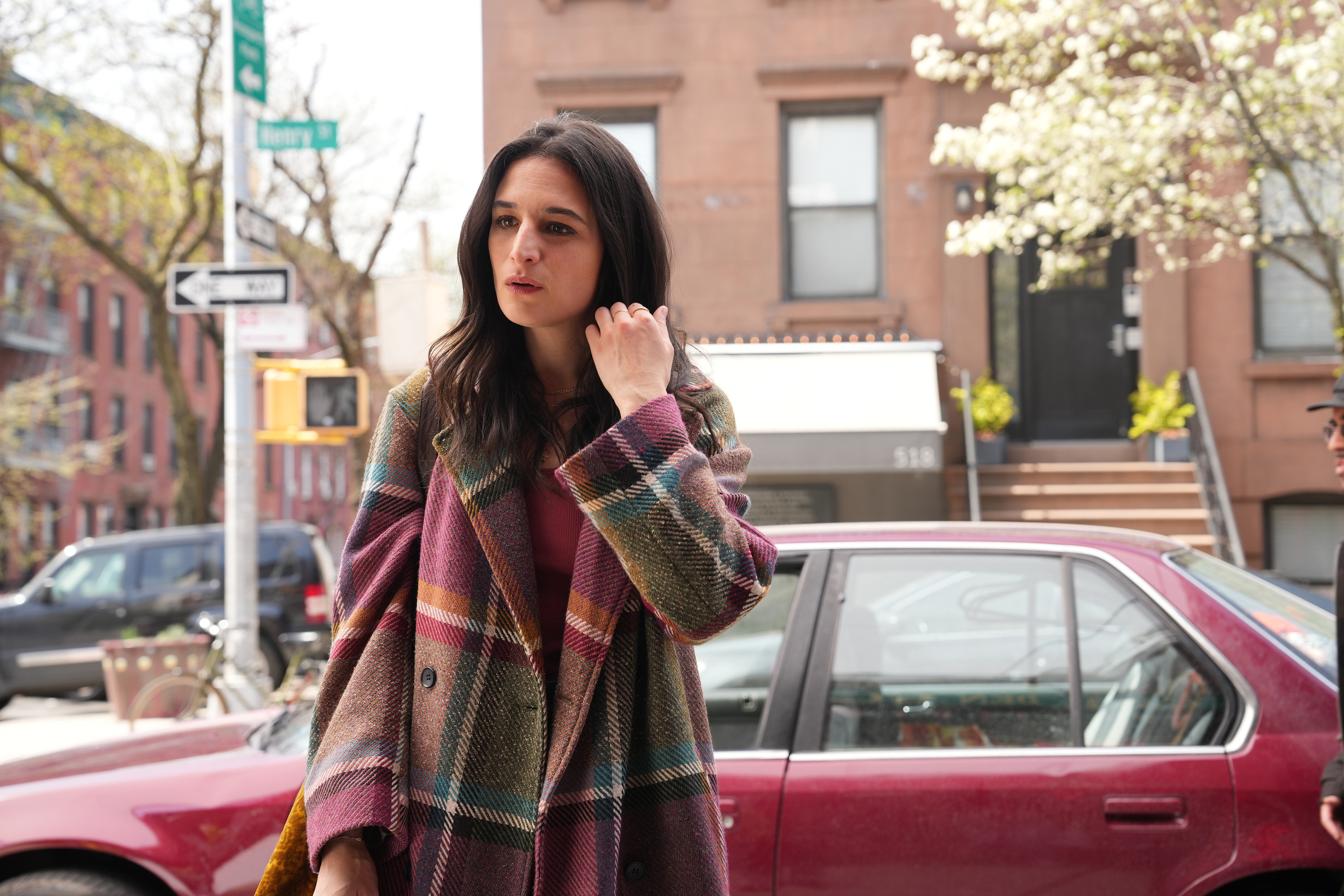
Nikki in a scene from Dying for Sex.
MC: There are a lot of women behind Dying For Sex; Elizabeth Meriwether and Kim Rosenstock created the series, and Shannon Murphy directed most of the episodes. What do you think having so many women behind the show lent to it? Did it feel like a safe space?
JS: Our onset experience was so lovely. I'm hesitant to make it into a gender thing because I want to live in a world where a community functions at its best because we all respect each other's specificity, whatever that is. But I do feel that that is what happened on our set.
I enjoyed being able to work with a group of women who were parents. Shannon's daughter was there, and Liz and Kim, the showrunners, they are parents. Michelle and I, my daughter Ida is around the same age as her older son. It was a nice thing not to have to compartmentalize yourself and be able to talk about, ‘What's the nap schedule?’ and that doesn't make you unprofessional. Decades of women in so many workplaces have had to hide elements of their own maternity in order to be considered an equal part of the workforce, or just a relevant part of the workforce. It was nice that we shared so many concerns, ranging from, “How do I build trust with my scene partner? How do we explore our curiosity? What's the funniest way to do this?” to “Do you guys have anything planned for the weekend? We don't have childcare. What do you do with the 4-year-old?” It was lovely to be a full person and the way in which I could be my full self. That was a generally shared feeling.
What would the world be like if, sexually, women put themselves first? If women could make decisions about their bodies, there’s terror around that power—for good reasons, because the power is immense.
MC: Did the safeness you felt on set translate to scenes like the kink party? What was filming that scene like?
JS: There were so many people there. There were so many butts and a lot of the people who were performing the art that they actually do. I was just really curious. I was looking around with my mouth open, like, “Well, how do you tie that onto that? And do you guys always work together in this sacred art of the tying of the thing?”
I also really wanted to make sure that Michelle as Molly could get what she needed out of that moment. Because it's a vibrant, wild, erotic setting, but for Molly, it's not just like, ‘I'm horny.’ For her, it's about understanding her relationship to power and starting to understand her way out of feeling disempowered and silenced and numbed. There's a real pivotal moment there, and I found myself in this out-there environment being concerned with my focus as a performer, but I think that's a great challenge to have.
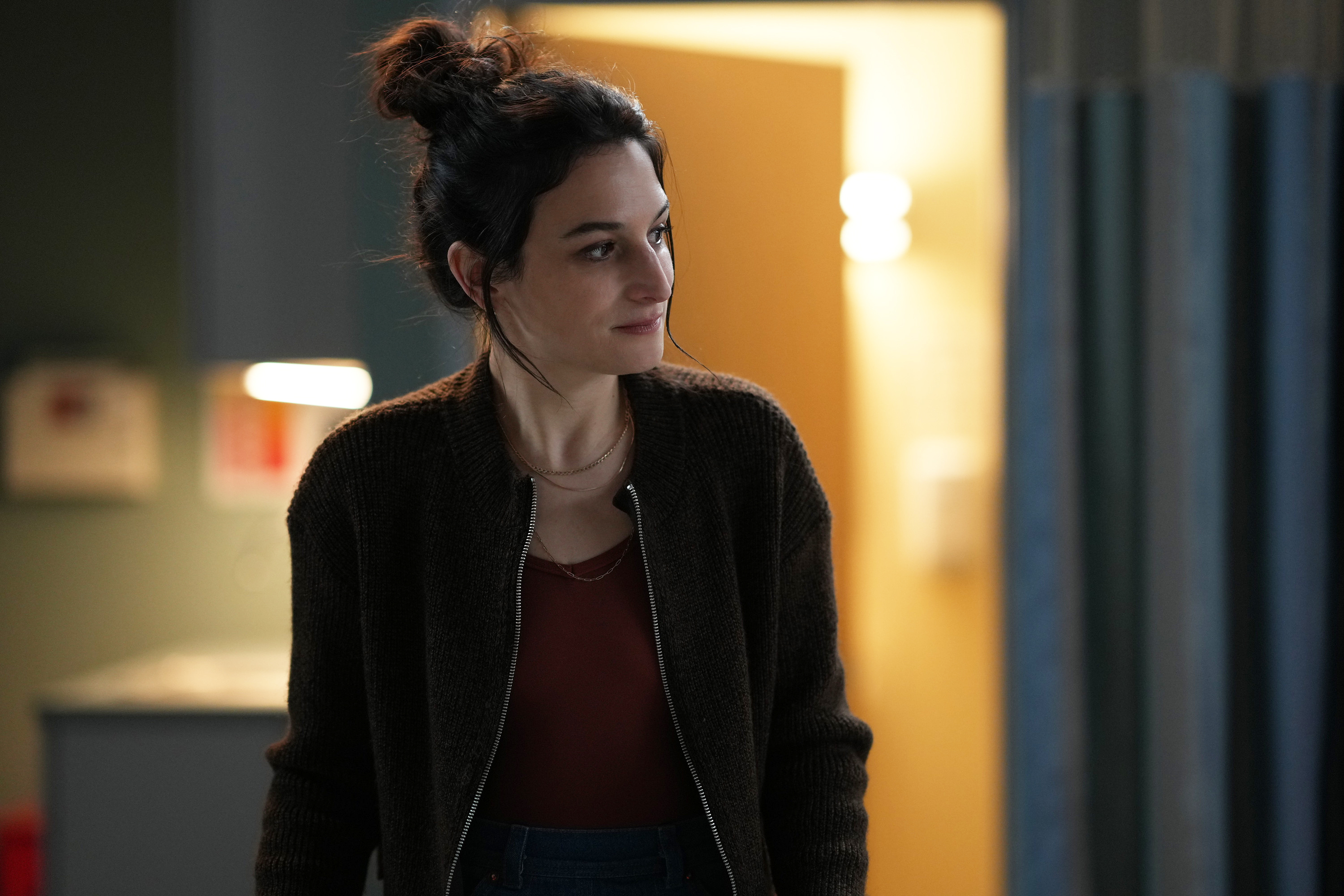
Slate says Nikki's grief and deep fear of losing her best friend "was something that I had to create."
MC: Dying for Sex is one of several projects in recent years about women in pursuit of pleasure, but from a very feminine perspective. Why do you think those conversations are happening now and are worth having?
JS: Generally, I want to live in a world where female pleasure is prioritized and where it signifies many different things and where the act of finding what brings one pleasure is as specific and personal and investigatory as we need it to be. I think that these stories are rising to our attention because, I mean, I hate to say it, but the discussion hasn't been had enough.
I’m 43, so maybe I’m just a geriatric millennial, but there is a part in the show where Sonya, played by Esco Jouley, is like, “Why do you think that? Because Samantha said that.” When I read that in the script, it floored me because I was watching Sex in the City when I was in college, and it wasn’t until I started reading these scripts that I turned that question on myself. I've always been open about enjoying sex and wanting to enjoy it, and I felt comfortable talking about it on stage, but all of a sudden, I realized that I hadn't had a more private conversation with myself about my feelings about pleasure and deserving it. It's almost as if maybe I tried to jump over that to not have to look at the parts of myself that are a bit more cruel, a bit more like a mean school mistress who's like, “You're either a good girl or a bad girl.”
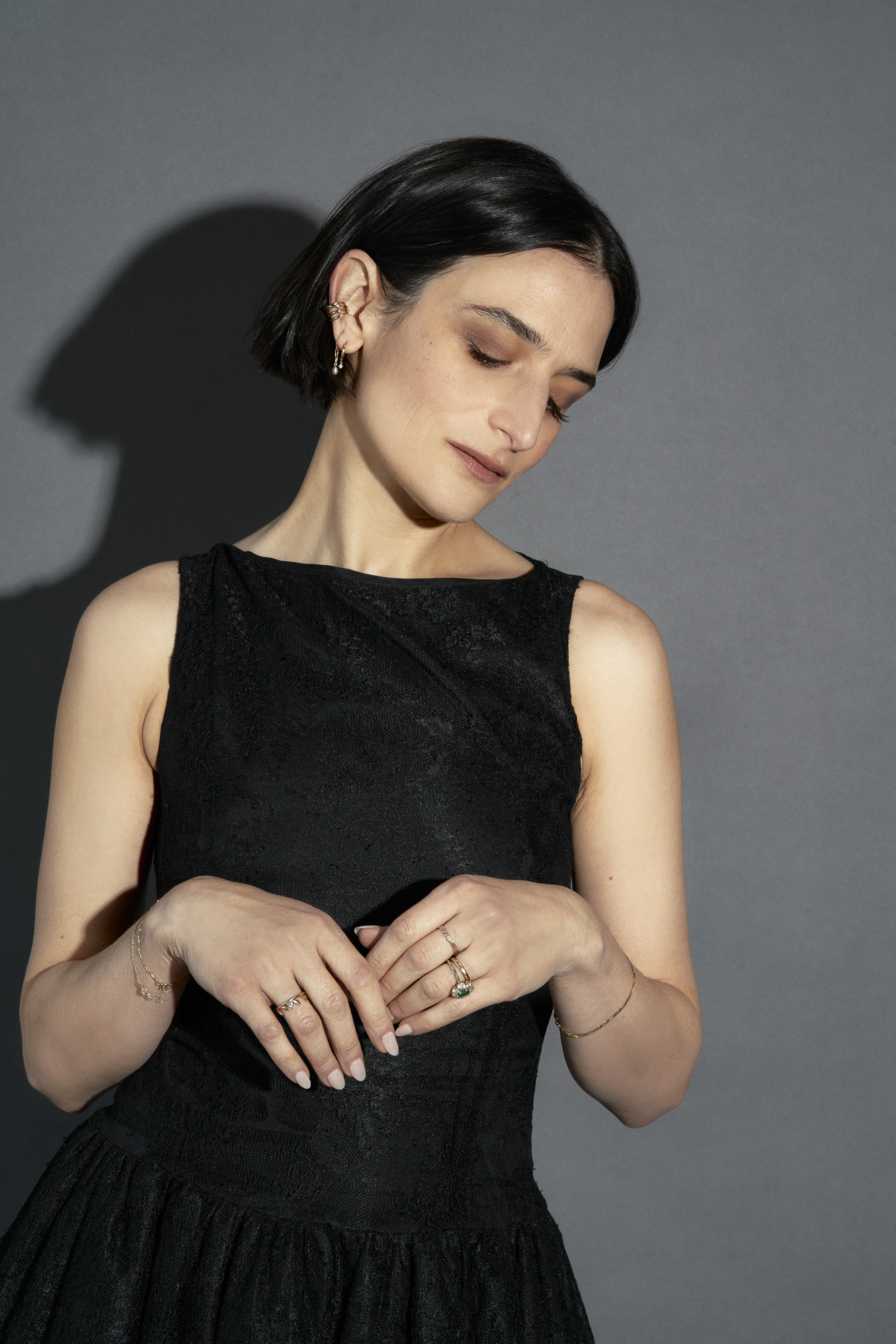
Of her career's next chapter, Slate says, "...it's a new version of me as the performer that I've always been, but there’s something more now."
MC: It’s no secret that there are more limited roles for women over 40, and you’ve spoken about being nervous about that in your career. But you landed maybe your best role after entering your 40s and having a baby. Does that feel encouraging?
JS: It's very, very encouraging. There's truth to the fact that there are most likely fewer roles for women as they age, but also nobody told me how good I would feel in my 40s, that it would be the best time yet. I'm really lucky that I have agents who care about me as a human being, and they encouraged me to believe that I could invest in a career where I am constantly saying, “I think this is my best opportunity yet.” I hope to say, “This is my coolest chance yet” every single time I do new work.
It also feels like it's a new version of me as the performer that I've always been, but there’s something more now. It's the combination of how I've changed because I became a parent, how I've changed because I have lost people in my life in the last few years. Just like our show, but in different ways, it is a combination. I think it's unwise and not worth a person's time to try to exist only in a distillation of positive things or a distillation of things that are just the things that we think make us look and feel good, because the things that have hurt me and held me back are the things that often are gesturing at that which will set us free.
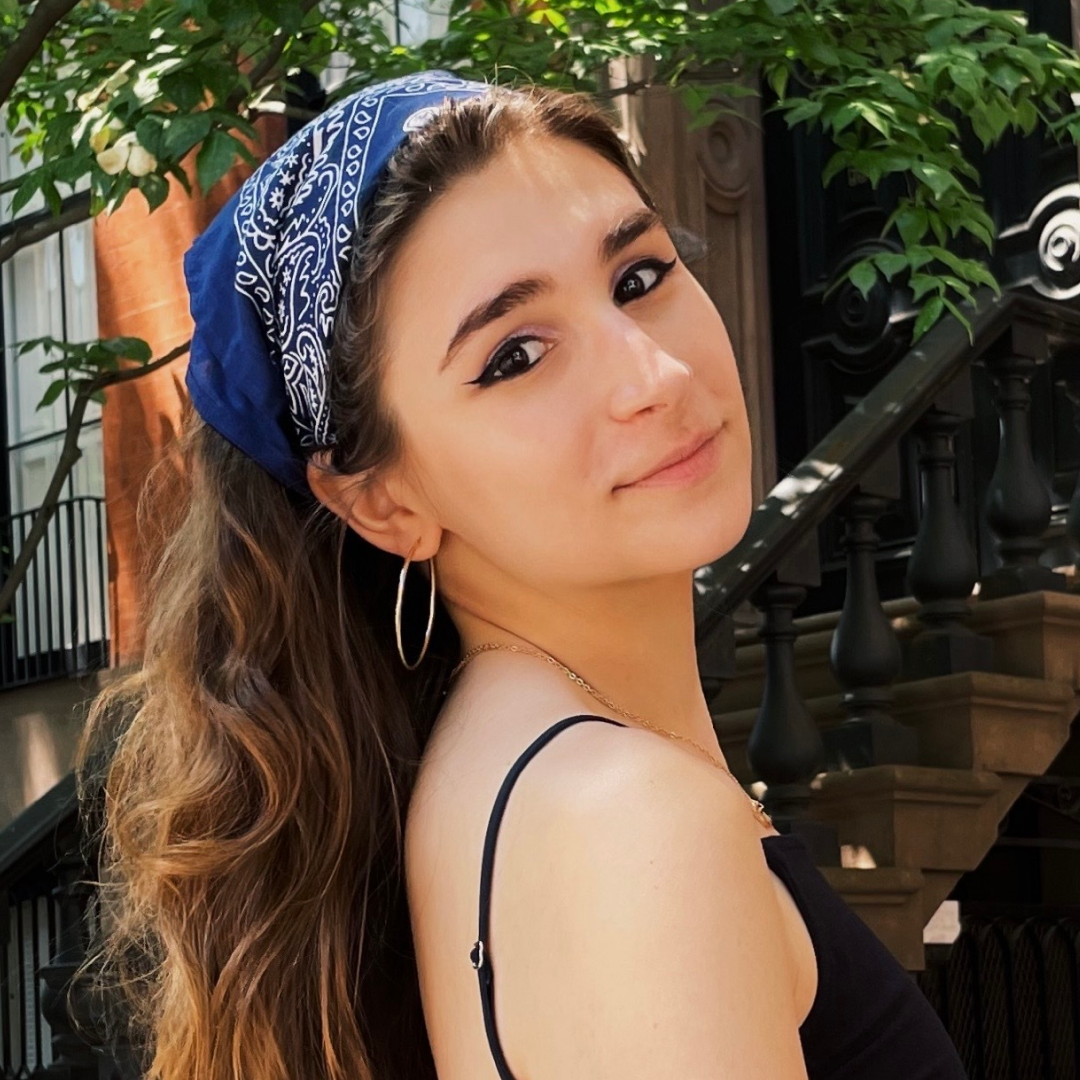
Sadie Bell is the Senior Culture Editor at Marie Claire, where she edits, writes, and helps to ideate stories across movies, TV, books, music, and theater, from interviews with talent to pop culture features and trend stories. She has a passion for uplifting rising stars, and a special interest in cult-classic movies, emerging arts scenes, and music. She has over nine years of experience covering pop culture and her byline has appeared in Billboard, Interview Magazine, NYLON, PEOPLE, Rolling Stone, Thrillist and other outlets.